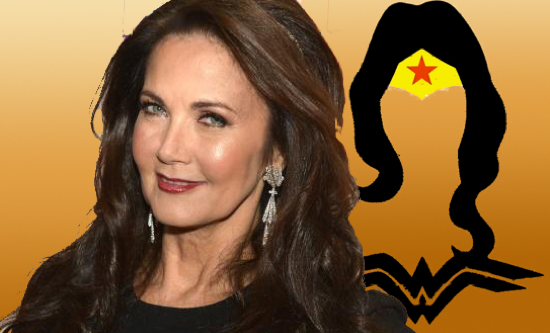Mindy Newell: Daughters of Hippolyta
On Friday, October 21, 2016, something remarkable happened.
Princess Diana of Themiscrya was appointed an Honorary Ambassador for the Empowerment of Women and Girls everywhere around the globe by the United Nations in a ceremony led by Under-Secretary General for Communications and Public Information Christina Gallach. It was attended by the actors Lynda Carter and Gal Gadot. Remarkably, the Princess herself did not appear.
Why is this remarkable?
Princess Diana of Themiscrya is a fictional comic book character co-created 75 years ago by writers William Moulton Marston, his wife Elizabeth Holloway Marston, and artist H.G. Peter. She first appeared to the public in All Star Comics #8 (December 1941) and then was given the cover to Sensation Comics #1 (January, 1942). The very first issue of her eponymous book showed up on the newsstands in the summer of that same year.
Don’t recognize the name? Then how about this one…
Wonder Woman.
While DC Entertainment – a.k.a. DC Comics – and its parent company (hmm, is that Time Warner or AT&T or Apple or…?) must be plotzing. Not everybody is happy. Started by fifty United Nations staff members and women’s rights advocates around the world, a petition by “Concerned Members of the United Nations Staff” is now circulating on the Care2 Petitions website asking the U.N. to “reconsider.” As of yesterday (Sunday, October 23) 2,284 people have added their names; the goal is 5,000 signatures. Part of the petition reads as follows:
“Although the original creators may have intended Wonder Woman to represent a strong and independent ‘warrior’ woman with a feminist message, the reality is that the character’s current iteration is that of a large breasted, white woman of impossible proportions, scantily clad in a shimmery, thigh-baring body suit with an American flag motif and knee high boots – the epitome of a ‘pin-up’ girl…
“… At a time when issues such as gender parity in senior roles and the prevention of sexual exploitation and abuse of women and girls is at the top of the United Nation’s agenda…[I]t is alarming that the United Nations would consider using a character with an overtly sexualized image at a time when the headline news in [sic] United States and the world is the objectification of women and girls…”
As a former writer of Wonder Woman, and as a fan of the magnificent work by so many others, including George Pérez, Trina Robbins, Gail Simone, Greg Rucka, Cat Staggs, Liam Sharp, and Nicola Scott – and that’s just a quick list off the top of my head as I write this – I totally and absolutely disagree with the petitioners’ assessment of the character as a woman of “epitome of a pin-up girl.”
Wonder Woman ain’t no Bettie Page; when I look at her or think about her or write about her, I don’t see “fantasy sex kitten.” I see “strong” and “proud” and “educated” and “independent” and “smart” and “real.”
As real as any of us.
“In some magical and mystical way, there lies within each of us a Wonder Woman. She is real. She lives and she breathes. I know this because she lives in me, and she lives in stories that these women tell me, day in and day out. I see it in the letters and in the stories. I read it on social media. I see it in the tears that fall from the eyes of the women who say it saved them from some awful thing that they endured – because they saw that they could do something great… She brings out the strength every woman has. We are stronger together. We are half the world. We have a voice. We are the mothers of mankind.”
Lynda Carter, The United Nations, October 21, 2016












